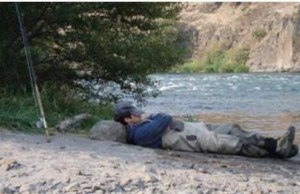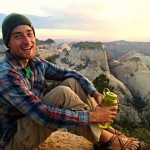 CPW’s Ashland Team Facilitates Parking Management Progress
CPW’s Ashland Team Facilitates Parking Management Progress
Visiting Ashland, Oregon is such a pleasure that on Wednesday, March 5 the Community Planning Workshop’s “Ashland’s Sustainable Transportation Team” embarked on their second expedition to that magical place of joy and unity. While there, the team embraced the spoils and character that Ashland’s downtown so aptly provides, including its illustrious pizza parlors, coffee shops, and a delightful stroll along the banks of Ashland Creek. Yet, the Ashland Team was visiting with purpose. The team was on a mission to find parking.
While the team was successful in finding parking that day, the primary mission is to assist the city in ensuring that all visitors, local residents, downtown employees, and business owners will have available and convenient parking throughout the year, particularly during the summer tourist season. Although the Ashland Team was not able to see Shakespeare’s The Tempest or Richard III on this trip, these plays and others draw hundreds of thousands of visitors to the Oregon Shakespeare Festival in this town of 20,000 residents each year. Thus, the downtown parking situation in Ashland from June through September can be more of a midsummer night’s nightmare than a dream.
How will the Ashland Team help rectify this parking predicament? By guiding the Ashland Downtown Parking Management and Circulation project through several phases of research, culminating in the development of several policy packages. This process will be conducted collaboratively with the mayoral appointed Project Advisory Committee (PAC).
The PAC is composed of knowledgeable and dedicated Ashland city staff members and residents who won’t settle for just another set of planning options that will eventually collect dust on a shelf in the city’s archives. This group is committed to this project from planning through implementation phases for the benefit of Ashland’s downtown users. The Ashland Team’s role is to support the PAC’s decision making with in-depth research and analysis, and to escort the PAC through an organized, strategic, and publicly transparent policy development process.
And that brings us back to the Ashland Team’s second voyage to Oregon’s little city with big parking problems. On that day, the team came prepared to facilitate a meeting with the PAC, and facilitate they did! The meeting was highly productive as all participants came to the table ready to evaluate the findings from the project’s first Survey (which solicited an impressive near 800 responses) and discuss revisions to a draft of Guiding Principles compiled based on the survey results and other resources.
Team Ashland headed back to Eugene that night with important new insights. First, the PAC is composed of motivated and sophisticated individuals who care deeply about making a positive impact in their community. Second, with only a month between meetings the Team has a lot of work to do: composing a second survey, formalizing the Guiding Principles, planning an on-the-ground parking and bicycle monitoring effort, and beginning to craft the project’s policy alternatives.
Stay tuned next month for a report on our parking and bicycle monitoring effort!
 About the author: Andrew Dutterer is pursuing concurrent master’s degrees in Environmental Studies and Community & Regional Planning. At heart, Andrew is a trout and steelhead fishing bum who loves to spend time on any river, but he now realizes that parking is an interesting subject as well.
About the author: Andrew Dutterer is pursuing concurrent master’s degrees in Environmental Studies and Community & Regional Planning. At heart, Andrew is a trout and steelhead fishing bum who loves to spend time on any river, but he now realizes that parking is an interesting subject as well.


